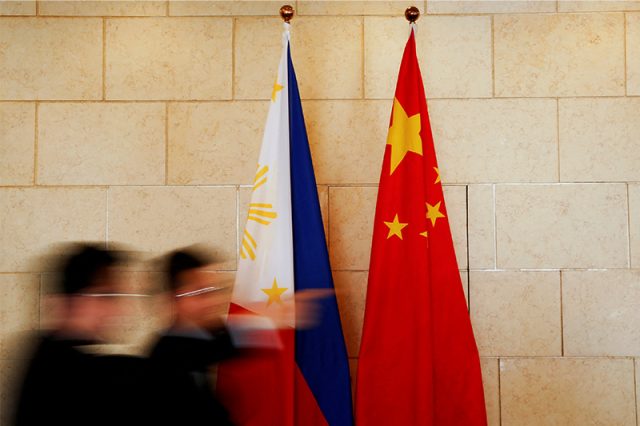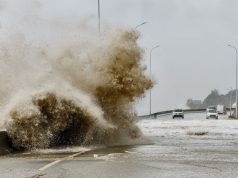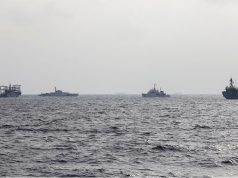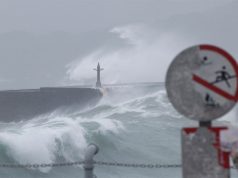
China and the Philippines have ramped up rhetoric on defending territorial claims in the South China Sea, despite both calling for dialogue to settle tensions over that strategic waterway.
Are ties worsening?
Since taking office in mid-2022, Philippine President Ferdinand Marcos Jr has taken pains to depart from his predecessor’s pro-China, anti-U.S. stance. As Marcos seeks to deepen ties with longtime defense ally the United States, relations with neighbor China have soured, most visibly in a series of maritime confrontations.
The Philippines has accused China of “aggressive” behaviour, including most recently firing water cannon at a boat carrying the Philippine military chief. Marcos has said ties are heading in a “poor direction”.
China, which lays claim to most of the South China Sea, has urged the Philippines to stop “maritime violations and provocations” and “groundless attacks and smears”.
But both have reiterated a commitment to dialogue.
What is the impact of the recent animosity?
The two countries’ war of words has yet to have a far-reaching effect on trade or everyday relations.
China was the Philippines‘ third-biggest export market in 2022, taking $10.97 billion worth or 13% of its shipments, behind only the United States and Japan. China is its biggest source of imports, mainly electronics and machinery.
But in a sign there could be spillovers, Marcos last year ordered officials to renegotiate loans with China for three railway projects worth nearly $5 billion, citing a lack of progress on fund disbursement.
What role does the United States play?
The United States has capitalized on thawing relations with the Philippines, an ally it considers crucial to projecting its own influence in the Indo-Pacific and countering that of China.
Actions that have irked China include the Philippines granting Washington access to more of its military bases, and new, detailed guidelines on the when their seven-decades-old defense treaty would be invoked, including after an armed attack on either country “anywhere in the South China Sea”, not necessarily involving military.
The United States and the Philippines have expanded annual military drills to include joint exercises in and over the South China Sea this year, which the previous Manila administration had avoided, indicating that closer defense ties are here to stay under Marcos.
What are the risks if tensions continue?
China has signaled it will not let up: It refused to recognize a 2016 international arbitration ruling that invalidated its vast South China Sea claims, while continuing its militarization of manmade islands and boosting the presence of its coast guard and fishing fleet in the exclusive economic zones of its neighbors.
Alexander Neill, Singapore-based adjunct fellow at Pacific Forum, expects China to build out its naval presence at strategic reefs and shoals.
“I don’t think it’s necessarily going to dial down the pace and scale of what it’s doing,” he said.
A Dec. 21 phone call by China’s foreign minister to his Philippine counterpart calling for dialogue, he said, is also a “tacit acknowledgement that things could escalate into a potential flashpoint. China realizes that they’re perhaps on the cusp of unmanaged escalation.”
Analysts have said the recent mud-slinging is unlikely to spark military conflict. The under-equipped Philippine coast guard and navy are no match for China, and the stakes are high for Beijing given the U.S. defense treaty commitments to the Philippines, which Washington has repeatedly vowed to honor.
But brinkmanship in a “crowded sea” means persistent risk of small-scale skirmishes that could trigger military involvement, according to geopolitics researchers Alexander C. Tan and Neel Vanvari at New Zealand’s University of Canterbury.
— Reporting by Karen Lema in Manila and James Pomfret in Hong Kong; Writing by Kanupriya Kapoor; Editing by Martin Petty and Edmund Klamann









